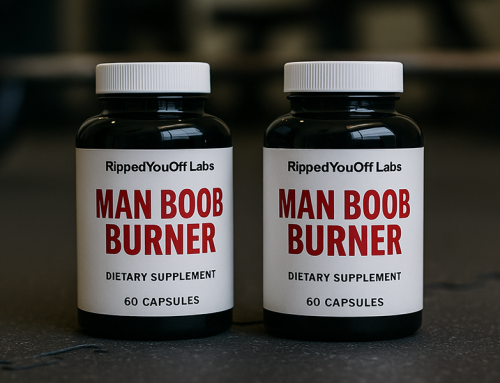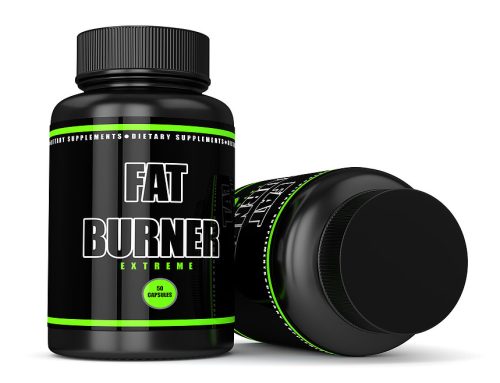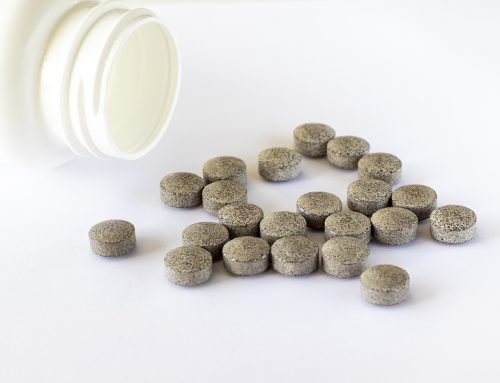Unless you’ve been living under a rock somewhere for the last several years, you’ve probably heard about the health benefits of eating fatty fish or taking fish oil supplements. Well, it looks like you might be able to add fat loss alongside the other benefits like heart, blood (cholesterol/triglycerides), brain, skin and joint health (and the rest of the list, which is too long to print here). The biologically active ingredients that seem to make fatty fish so beneficial are are the long chain omega-3 (n-3) fatty acids, EPA and DHA. At least a half a dozen human studies and more than two dozen animal studies have been completed in the last 10 years which suggest that these omega-3 fatty acids found in fish may help you lose more fat. However, the fat loss benefit is not as much as some people want you to believe…
The results of two new studies on fish oil and fat loss were just released earlier this year.
In one study published by the International Journal of Obesity,researchers from Reykjavik Iceland tested the effects of fishor fish oil consumption equivalent to 1.5 grams of combined EPA/DHAon body weight and body composition as part of a calorie restricted diet. (1)
The subjects were 324 young overweight men and women who followedone of four experimental protocols for 8 weeks:
(1) sunflower oil capsules (control)
(2) lean fish
(3) fatty fish (salmon)
(4) fish oil capsules
The researchers reported the following results:
“In young, overweight men, the inclusion of either lean or fattyfish, or fish oil as part of a hypoenergetic diet resulted in1 kilogram more weight loss after 4 weeks than a similar dietwithout seafood or supplement of marine origin. The addition ofseafood to a nutritionally balanced energy-restricted diet mayboost weight loss.”
It should be noted that the study was supported by the SeafoodPlus organization and there were some limitations in the designthat could have influenced the subject’s compliance.
The second study, conducted at the University of South Australiaand published in the American Journal of Clinical Nutrition (2)investigated the effect of combining fish oil supplements withregular aerobic exercise.
In a placebo-controlled study, the subjects were divided intofour groups:
(1) sunflower oil
(2) sunflower oil plus exercise
(3) fish oil
(4) fish oil plus exercise.
The fish oil groups were given 6 grams of high DHA fish oilper day, which contained a total of 1.9 grams of long chainomega-3 fatty acids.
The exercising groups performed aerobic exercise three daysper week for 45 minutes.
As you might expect, the fish oil plus exercise group cameout with the best results:
- minus 1.2% body fat (compared to no decrease in the other groups)
- minus 2 kilograms/4.4 lbs (compared to no decrease in the non exercising group).
Unfortunately, there was a limitation in this study as well: Thefood intake of the subjects was self reported, which is knownto be notoriously inaccurate.
There have been several other human studies on fish oil andfat loss in the last ten years or so and the majority of thefindings have been positive. The research is compelling andthere have been numerous, and very plausible mechanisms ofaction proposed.
However, more and more often, I am hearing people in the health,fitness and nutrition industries making some pretty bold and Idaresay, premature and outrageous claims about what fish oil cando for fat loss; claims which are not supported by the research.
The studies on fish oil and fat loss are encouraging, but thevast majority of research has been on animals (rats, mice andhamsters) and there have been flaws in nearly all the human studiesso far, including:
small sample sizes, short study durations, statisticallyinsignificant results, lack of randomization, no controlgroups, imprecise body composition testing, measurement errors,self-reporting of food intake, low compliance control andfish industry or supplement industry-sponsored bias.
Even if you take the results of the existing research at facevalue, the fat loss really isn’t all that impresssive – an extrapound here, an extra kilo there.
Many of the research results barely reach statistical significance, and you even have to wonder if these small improvements in fat loss are simply correcting omega-3 deficiency or fixing omega-3 and omega-6 imbalance… therefore, will they continue over a longer time period or is this a one time improvement?
One of the earlier studies showed the same kind of measureable but modest results: The fish oil group that took 1.8 grams of combined EPA/DHA dailylost 2 pounds and the non fish oil group lost only 0.7 pounds after3 weeks (3).
Of course, you’ll probably take all the fat loss help that youcan get, and since there are already enough good reasons to eatfatty fish for cardiovascular disease prevention and otherhealth benefits, it’s really a no brainer to eat fish such assalmon, trout, mackerel or sardines at least twice a week. (By the way, with the exception of King Mackerel, these are species which have not been reported as having problems with mercury contamination).
Alternately, you can use a fish oil supplement to get the equivalentin omega-3 fatty acids as found in the fish. Non fish eaters or vegetarians can use flaxseed oil, a plant-based source of Alpha Linolenic Acid (ALA) which converts in the body to EPA and DHA (the efficiency and amount of conversion has been a subject of controversy, however).
Based on the three studies cited above, it looks like 1.5 to 2.0grams per day of combined DHA/EPA is the right dose when fat lossis the goal (although some suggest you should consider body weight when choosing the dosage, i.e, 1 gram total fish oil for each 20 lbs body weight, so a big guy might go with as much as 3.0 grams of combined EPA/DHA)
Most fish oil capsules come in 1,000 mg size at a 30% concentration,so if you took five 1000mg capsules a day, that would give you 1.5 gramsof EPA/DHA; about the same as you’d get in 3 ounces (85 g) of salmon.
Note: other studies on fish oil and fat loss tested 3.0 to 4.0 g/day of EPA/DHA, but theAmerican Heart Association has warned against taking more than 3 g EPA/DHAper day without a physicians supervision, as there may be potential contraindications and side effects such as increased bleeding time. Based on the research, more fish oil will NOTburn more fat, so be wary of the “mega dose gurus”
Another tip: Don’t fall for the “premium price” necessarily means better quality party line. Quality and purity are important, but you can get molecularly-distilled, mercury, PCB, Dioxin, Organochlorine free, 3rd party tested-to-meet-label-claims fish oil for less than ten bucks per bottle of 400 (one gram) capsules… yet I have seen “fish oil gurus” selling the exact same thing for $50 to $60 claiming that everyone else’s products were “contaminated” and “inferior” in quality. If that’s true, then I’d like to see those products submitted to consumer lab for voluntary 3rd party independent analysis and head to head comparison on purity AND cost effectiveness. If they come out superior and cost effective, I will publicize the results right here on my blog.
The bottom line is it looks like fish oil may be a legitimate help to yourfat loss efforts, especially when combined with exercise, as there may be an important synergy there. However, the idea that fish oil is some kind of miracle fat burner is justnot true.
Like Mulder on the X-files, “I want to believe”… but we needmuch, much more research before we can say for certain exactlyhow much body composition improvement you can really expectfrom eating fatty fish or taking fish oil supplements.
Sincerely,
Your friend and coach
Tom Venuto, CSCS, NSCA-CPT
www.BurnTheFat.com
www.BurnTheFatInnerCircle.com
References:
(1) Hill AM. Combining fish-oil supplements with regular aerobicexercise improves body composition and cardiovascular disease riskfactors. Am J Clin Nutr. 86(5): 1267-1274. 2007
(2) Thorsdottir I et al. Randomized trial of weight loss diets foryoung adults varying in fish and fish oil content. Int J Obesity.May 2007. pp 1-7
(3) Couet C. Effect of dietary fish oil on body fat mass and basalfat oxidation in healthy adults. Int J Obes. 21: 637-643. 1997
——————————————
:: FAT BURNING RESOURCES ::
——————————————
BURN THE FAT, FEED THE MUSCLE
How to burn body fat and keep it off for lifewithout supplements, pills or starvation dieting:
http://www.burnthefat.com
BURN THE FAT INNER CIRCLE
The Internet’s premier fat loss support community.Charter rates end soon – don’t miss out…
http://www.burnthefatinnercircle.com







I agree Tom, the good fats play quite an important role in our diets, but there’s no such thing as a supplement that can melt fat… also, I notice nowadays, some people forget that we don’t need loads of fish oil, flax oil or peanut butter, just a bit of them…the good fats are still fats… especially eaten along carbs, they’re not good in a big quantity…
A billion dollar industry! It just amazes me to see all the ads, infomercials, and mailers that are involved to help you lose weight. Wait a minute did I say help you? My mistake they are out to make money off of you. Yes I have contributed my share to the industry and I am still waiting for my thank you card! I sent a letter to The Acme corporation that read; To whom it may concern; I have finished my 30 day flab buster ab builder workout and diet routine can you please send me my free abs! I am still waiting for a reply! I have been over weight for most of my life and I am sick and tired of it. Two months ago I made a comitment to my self to lose the weight and get in better shape. One day I was browsing the Internet and I came across Toms’ site and I was blown away. I just finished my last installment of Big Fat Lies, the twelve part series that Tom sends to you (for free). I could not get enough! I just wanted to say thanks Tom, I am buying Burn The Fat Book next!
I TAKE A 1000 MG DOSE OF FISH OIL EVERY DAY, FOR ABOUT 3 YEARS. I EXERCISE DAILY, CARDIO AND WEIGHT TRAINING. I AM 46 YEARS OLD. AS FAR AS FAT LOSS GOES THERE IS NOT ANY WAY TO ATTRIBUTE THAT TO FISH OIL. MY INSTAKE LEVEL IS LOW ACCORDING TO THIS ARTICLE BUT, IT IS CONSISTANT.I STARTED TAKING TO LOWER MY TRIGLYCERIDE LEVELS. I AM 6’3 AND WEIGH 240. MY WEIGHT IS A CONSTANT WITH ME, WEIGHT TRAINING AND SUPPLIMENTS KEEP IT HIGHER THAN I LIKE BUT I LIKE BEING BIG. FAT IS A PROBLEM, AND I HAVE SEEN NO NOTICABLE DROP FROM FISH OIL. MY TRI’S HAVE DROPPED HOWEVER.
Coach Tom:As always publicity goes beyond our thinking, once a substance hits the market every one must buy.There is many research to be done about fatty acids, my eternal question, how did our ancestors grew healthy or sick without all these modern “wonders”? My family´s only source of fats during the last century in Mexico was pigs fat laird, we passed through generations eating very few raw vegetables, in the center of Mexico, salads are a new dish, 20 years or less.I´m a scientist in mechanical eng. and I always digress on the procedures of making the tests on humans, lots of errors in making the proper questions.All the studies are made on a statistical populations that would comply, we humas have so many variants and exclusivities that no study can be as general as should, we have a different chemistry for everything, eating, sleeping and even having relations with our friends and families. A study conducted in the UK or in Australia, is not to be taken the same on South Asia or in East europe the same. the results on the article could no mean anything if you changed or not the habits of the participants, if you changed them then results are useless and if not there is no real control of the variables in life, stress, activities and even periods of rest.The same case, the doctor tells somebody to lower down triglicerids, then not a drop of fat, no milk no sweets, etc. Yes a month later the levels are down, that doctor is a genius, then the diet falls and everything restores bad or worst, that only was for a short period of time and was a drastic solution, not a lifetime solution, the same happens with these kind of studies, a new substance that hits the body for a short period can give results, but let´s see for years what really happens.sincerelyJorge
I will have to read this study – what were results of the exercising placebo group, of course exercise is going to have an effect.I myself am a very high user of fish oils and flaxseed oil. 2-3 tbs of flaxseed daily with at least 2 serves of fish daily. and 2000mg of EPO daily Perhaps too high, but my health has improved greatly and I attribute much of this to clean carbs, high protein and high levels of EFA’s – I eat very little saturated fat and sugar. This has produced a calmer me, better hair and skin.As for body fat loss, this was the result of just hard work and patience. My opinion is that the addition of the EFA’s with a healthy diet open up clean and clear the metabolic pathways and liver to ensure an effective release of energy. maximising our efforts. As we all know, we can exercise as much as we like, but if our diets are still a mess we will get little to no result.
A great truthful article. No wild claims or “sworn testimonials”. Just a highly informative article with equally informative and rational comments.FINALLY!
We’ll I’m not an exercising guru but I have been taking 1000mg of flaxseed and 1000mg of fish oil daily for about 3 months. During this time I have cut the fat out, “good” carbs and have been running intervals everyday. I’ve lost 30 lbs.I attribute the weight loss to hard work and a good diet. I started taking them because my father has had 3 strokes in the last 2 years because of high cholesterol. I’m just hoping my preventative maintenance pays off with some other benefits……I can’t say that the oils helped but can’t say they hurt either.
interesting article, this reminds me of a study that was done a few years back regarding milk. the results were similar, in that the participants that drank milk consistently lost a LITTLE more weight.
Tom, you don’t mention the length of the S. Australian study? Whether 4.4 lbs is good or not depends a lot on the length of time involved…I looked for the article but AJCN is only online through 86(3) at this point.
The AJCN study was the longest one of the bunch – 12 weeks. Not much weight loss; however, the subjects were instructed to maintain their normal diet during the study, so this was not a calorie restricted trial – these subjects were taking in anywhere from 2100 to 2550 calories per day. Subjects were all male, so this is still a conservative caloric deficit for most men however, if we can believe their self-reported food intakesWe need more research – seriously, all the human studies I looked at had some pretty glaring flaws or limitations. One 2003 study that I didnt mention inthis post didnt even get through peer review to full publication because the results were so wacky..
It makes sense to me to keep right on taking fish oil if it helps me lose fat or not. It has enough reasons to keep taking it don’t you agree. As for losing weight, well it’s like this, God didn’t make us all alike so I guess some of us just wont be able to benefit 100%. Take a word of advice from an old weight lifter (40+ years of it) add some flax seed to your diet along with this fish oil. Buy it in seed form, then get one of those electric coffee bean crushers and indtead of using coffee use flax seed. You won’t be one bit sorry!
Hi Tom,Thanks for coming up with this kind of an article. I appreciate you citing the studies and research.I used to take the cod lever oil or fish oil for one or two months a year.when I started reading your blog, it was quite confusting for me on the usage of fish oil, the essential oil blends and the oils we use for cooking.This one really cleared it all upthank youthanks for your excellent suggetions.Regards,Arun Jacob.
Tom,As always your articles are timely and informative. I have been hearing so much about fish oil lately from every direction! The benefits of fish oil go beyond weight loss, and I would take it for those reasons. But as for weight loss, I have long ago given up on any magic pill that will do the work for me. The work isn’t glamorous, but changing diet & exercise habits is what really works. I would recommend someone read your book rather than shell out money for fish oil supplements.Thanks,Kathy
Hi Tom,This is great info. about fish oil, we really need to know about these kind of details before trying anything out.The more info you know before you buy the more you know how much & when to use it or if you need to use it at allThank you for the info.Param
thanks tom for your timely mails.i tell my friends about this fish oil article,i believe it will work.
I eat 1 fish oil capsule a day but sometimes i belch up fish oil during the day and it is disgusting. I can only imagine if I ate 3 capsules.My doc said the fish oil is also good for reducing cholesterol
Hi,I hope you can help me a little with this.I´m a body builder since some years ago.I dont compete seriously,but to me is way too important in my life and I work out as if Iwas going to take part in competition.My diet is quiet healthy and clean based on a 6 meals per day and with a fair prot-carb-fat ratio.I heard about Omegas awhile ago and I thought why not?My intention is not fat loss but health imprvoment.But as a “rookie” in this matter,should I cut my fat intake back if I take up with Omegas supplements’.I´ll let you know I have nuts,flax oil,tuna and fishes alike,sesame seeds everyday…Thanks a lot.Suzanne.
i find myself coming back to re read this entry over and over again. thx.
Cindy, about that fish “repeat” (polite way of saying fish burps)…try putting the gel caps in the refrigerator or even freezer, then take them … sort of makes them “time-released” so to speak, also take with meals… and if that fails, do one or both of the above and take before bed… then you will “repeat” while you are sleeping! :-)tom
Suzanne, all you have to do is count the calories from the fish oil as part of your daily allotment. Some people either forget to report/record the calories in the supplemental oils they take, or they think that somehow those calories dont count becuase they are “healthy” calories.In an american journal of clinical nutrition article, Jan eritsland wrote, “an increase in polyunsaturated fatty acid intake should be at the expense of saturated fat intake, because in the long run, a subsstantial addition of the energy-dense polyunsaturated fatty acids to the habitual diet could result in weight gain.”So bottom line is, dont just add the oil on top of your normal diet without accounting for the calories. Count those supplemental oil calories into your daily calorie count, and yeah, its not a bad idea to drop some of the saturated fats and put those omega fats in their place
Curious here – along the lines of the fish oil – what about CLA (Conjugated Linoleic Acid)?I think that some research was done and despite the fact that this is a triglyceride, it actually has a double effect on dumping fat from adipose tissue and building lean muscle mass. I used it prior to Ironman Canada as a supplement, and I’m not sure if it was the CLA, the ALA or the fact that I was putting 20-23 hour weeks in training but I managed to dump 23 lbs in just under three months.Thoughts???
Re: CLA – CLA does no contain the DHA and EPA you find in fish oil so CLA is a separate discussion altogether. The research is very mixed on CLA and fat loss if you look at the human studies (seems very effective for leaning out mice and hamsters though). If youre a human however, Im not ready to recommend CLA as a “fat burner” yet
Good stuff Tom- we all know that fish oil is good for us, but sometimes certain things get overrated.
Acai berries, anyone?
Tom,
I am a little confused on how many pills that I should take. I have Fish Oil from natures made. The bottle says 500 Fish Oil on the fron and right below it says 160 on the Omega – 3.
I would like to lost about 60 pounds long term. How may of these should I take?
Thanks for your help I am lost with all this.